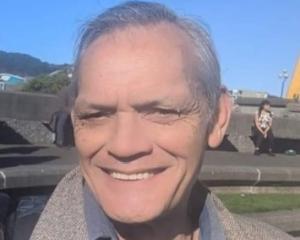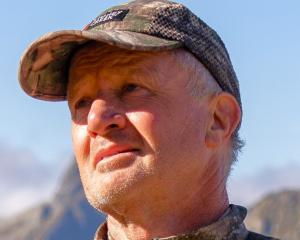The New Year Honours 2018 Southern recipients.
New Years Honours 2018: full list
Prominent Kiwis now knights and dames
CNZM
 Dr William Blair Rhodes Rolleston
Dr William Blair Rhodes Rolleston

St Andrews
Services to the farming industry
South Canterbury’s Dr William Rolleston said he was humbled by the thought other farmers and peers had put his name forward and he was grateful for the recognition in becoming a Companion of the New Zealand Order of Merit.
During his time as president of Federated Farmers, Dr Rolleston fought for science-based solutions to the impact of farming on the environment and he successfully engaged farmers, making them part of the solution.
"The real recognition ... needs to go to the thousands of farmers who have responded to the evidence and moved to improve their productivity while reducing their environmental footprint," he said.
"I have just been blown away by farmers’ approaches to these types of issues. Farmers are good people. And if you give them a problem, they want to solve it. They’re fixers — they like fixing things."
Dr Rolleston was vice-president and then president of Federated Farmers until this year. He was vice-president and then acting president of the World Farmers Organisation. A medical doctor who trained at the University of Otago, Dr Rolleston took on the family’s 5000ha Blue Cliffs Station sheep and beef property, south of Timaru, with his brother John. They started a biotechnology company, South Pacific Sera, which produces biological products for pharmaceutical companies. It employs 70 people and provides grants and scholarships to students studying bioscience at a South Island university. He has helped negotiate agreements for biosecurity, and in 2011 helped form and volunteered in the Farmy Army — the response to the Christchurch earthquakes.
He was founding chairman of New Zealand’s Biotechnology Industry Organisation and of the Life Sciences Network. He has also held various government science policy positions.
ONZM
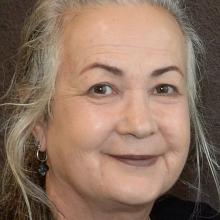 Margi Robertson
Margi Robertson

Dunedin
For services to the fashion industry
Recognition of her work in developing a locally based fashion label was "a great thing for Dunedin", NOM*d creative director Margi Robertson says.
Ms Robertson said it was pleasing to receive the honour considering NOM*d was "perceived as a little bit of an underground label".
The honour was also something she would never have been able to achieve without all the people she had worked and collaborated with, she said.
Ms Robertson founded her first boutique in 1975 and her boutique Plume, which opened in 1978, continues to trade in both Dunedin and Christchurch. Since its establishment NOM*d has been among a small number of directional fashion labels responsible for defining the style referred to as "the New Zealand look". The look encapsulates a mixture of tonal darkness and humour that has become a hallmark of Dunedin fashion.
NOM*d was one of four New Zealand labels invited to exhibit at London Fashion Week in 1999, which led to her designs enjoying a flourishing trade in Europe, the United States and Asia.
Her work was showcased in the inaugural New Zealand Fashion Week in 2001 and some pieces are included in the Te Papa Tongarewa collection. Ms Robertson has been an active sponsor of Dunedin’s creative talent, consistently recruiting her label’s staff from new graduates and stocking the work of young independent designers in her boutiques, while keeping the internationally renowned NOM*d Dunedin-based. Ms Robertson is a long-term supporter of iD Fashion Week and has been a judge for several years of the iD International Emerging Designer Awards.
 Dr Malcolm Macpherson
Dr Malcolm Macpherson

Alexandra
Services to local government and the community
Mayors have a platform to make change — but it always relies on teamwork, former Central Otago mayor Dr Malcolm Macpherson says.
Dr Macpherson (71) said two of his proudest achievements were setting up the Warm Homes Clean Air programme and, with former Queenstown Lakes mayor Clive Geddes, establishing the Central Employment Trust (now Seasonal Solutions) to recruit horticultural workers.
Both schemes had had a far-reaching impact, affecting thousands of people.
"We just got it going. Other people did the work that made it happen," Dr Macpherson said of the seasonal workers’ scheme.
"A lot of stuff that happened out of my office weren’t council projects — there was often no council budget — but because you have a bit of profile ... you can make things happen.
"You’ve got to be an enthusiast.
"You have to be prepared to argue for your point of view."
His family were also instrumental in his success.
Dr Macpherson served three terms as mayor, from 2001 to 2010. He was a district councillor for eight years in the 1990s, and served on the Otago and later Southern District Health Boards for four terms.
He was a member of the Otago Polytechnic Council for eight years, and is a third-term member and former chairman of the Central Lakes Trust.He is chairman of the Central Stories Museum and Art Gallery, the Alexandra Men’s Shed Trust and the Clyde Rescue Boat Trust.
 Nigel Dean Skelt
Nigel Dean Skelt

Invercargill
For services to badminton
Nigel Skelt, vice-president of Badminton New Zealand and general manager of Stadium Southland, has been a long-term supporter of regional, national and international badminton.
A New Zealand representative badminton player in 1979, he has since been active in the sports administration, governance, management, coaching and mentoring.
He has been president of Badminton Southland and was president of Badminton New Zealand from 2004 to 2009.
As chairman of the Badminton World Federation (BWF) marketing committee he improved the organisation’s commercial revenues and portfolio to increase its worldwide profile and accessibility to the sport.
He was a founding member of the BWF women in badminton committee, and has worked to raise the profile of women in leadership roles in the badminton community.
Mr Skelt was co-project manager of the Stadium Southland redevelopment and project manager of the velodrome development.
He was awarded the Southland Services to Sport Award in 2009 and the Southland Sports Administrator of the Year Award in 1998.
MNZM
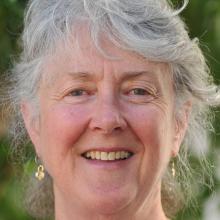 Prof Barbara Brookes
Prof Barbara Brookes

Dunedin
For services to historical research and women
University of Otago historian Prof Barbara Brookes is "delighted" with her award, an honour acknowledging her historical research, particularly on the history of women.
"It recognises that knowing our past is absolutely crucial to looking towards the future in this country," Prof Brookes said.
"I think it’s great to have the work that historians do recognised.
"We provide cultural capital that the country can build on."
Prof Brookes, of the department of history and art history, has focused her research on gender relations in this country, and the history of health and disease in New Zealand and Britain.
Her academic career has spanned four decades, including eight years as head of the university department, from 2004.
Her most recent publication was A History of New Zealand Women (2016), a culmination of decades of research and New Zealand’s first narrative history of its women, from the arrival of the first waka until 2015.
She had produced 10 books and 38 book chapters, and co-edited six books on women’s history and on health, and two collections of essays on New Zealand women’s history, honours officials said in an honours citation. Prof Brookes is co-editor of the New Zealand Journal of History and is on the editorial boards of Health and History, and the Journal of Family History. She played a key role in establishing the Staff Women’s Caucus at the university. In 2016 the university’s Centre for Research on Colonial Culture hosted the Making Women Visible conference on New Zealand women’s history.
This event was held in honour of Prof Brookes, and her leading contribution in this area.
 Stuart Collie
Stuart Collie

Invercargill
For services to agriculture
Stuart Collie says it is nice being acknowledged for something that over the years has provided him with a great deal of personal satisfaction.
The Invercargill farmer said it felt great to receive the New Zealand Order of Merit.
"In all honesty, a lot of what I’ve been involved in has provided me with an awful lot of personal satisfaction."
He has contributed to agriculture through several positions since the 1970s.
He was Federated Farmers Southland arable section chairman from 1977 to 1981 and
Federated Farmers New Zealand arable section chairman from 1981 to 1990.
Mr Collie was vice-president of Federated Farmers New Zealand from 1990 to 1996 and then Southern Institute of Technology (SIT) council director from 2000 to 2010.
He was also deputy chairman from 2002 to 2009.During this time, SIT underwent "significant innovative" change, including the implementation of the zero tuition fees scheme.
He was variously an Environment Southland councillor, deputy chairman and chairman between 1998 and 2010.
He also held a range of committee chairman and membership positions during that time.He was involved with the establishment of the Agrichemical Education Trust and the Growsafe accreditation system as part of his work on the United Wheatgrowers electoral committee.
These systems raised the standards of agricultural chemical use and remain in use today. Mr Collie served on the Southland Harbour Board for several years.
"I feel great. It’s quite nice, I suppose, to be acknowledged for things you’ve done in the past."
He was grateful to those who nominated him and for what they had said about his achievements.
"I have to thank them in that respect."
 Suzanne Ellison
Suzanne Ellison

Karitane
For services to Maori, the arts and governance
Seeing the development of Ngai Tahu communities in Te Waipounamu (the South Island) and artists develop their work are the two areas that provide the most satisfaction for iwi manager and researcher Suzanne Ellison.
Ms Ellison has been recognised for her long-standing contribution to community development, culture and heritage.She said she was ‘‘utterly stunned’’ someone had gone to the trouble of nominating her.
"When you’re doing things you really love it doesn’t seem too much like hard work."
Ms Ellison began her career in iwi community development when she joined Ngai Tahu as a communication and development officer in 1990. One of her roles was arts and heritage manager for the Ngai Tahu Development Corporation, where she has also been a senior manager for 10 years. She chairs the board of the Ngai Tahu Fund, which funds local and national initiatives such as traditional art workshops, environmental revitalisation projects and investigations into whanau whakapapa and history to strengthen Ngai Tahu culture. She is a member of the Arts Council of Aotearoa New Zealand and previously served two terms as a member of Te Waka Toi, the Maori Arts Board of Creative New Zealand. She has been a member of the organising committee for Te Maori: Te Hokinga Mai at the Otago Museum, a member of the Christchurch Arts Festival Trust Board and a trustee of the Southern Lakes Festival of Colour Trust. Ms Ellison has been a member of variously the Otago Maori Executive, the Permanent External Advisory Committee to Otago Polytechnic’s School of Art, the Otago University Maori Affairs Board and Well Dunedin Primary Health Organisation.
 Dr John Clive Guthrie
Dr John Clive Guthrie

Dunedin
For services to education and sport
University of Otago senior lecturer in marketing Dr John Guthrie says he is humbled to receive an NZOM for services to education and sport.
He has been in the university’s marketing department since 1988 and established the University of Otago Business Case Competitions in 2004, to challenge teams of four students to develop strategies for business.
Dr Guthrie has organised regional, national and international business case competitions on a voluntary basis, on top of his university workload.
He initiated a competition between the University of Otago and University of Waikato, and he has coached Otago University teams to achieve success (top 5 in the world) in international competitions.
He has been chairman of the International Business Association of Case Competition Coaches since its inception in 2010.
He was a founding member of the New Zealand Student Development Society in 2007 and became chairman in 2008.
The society runs a national league for business case competitions and has hosted an international competition for the past eight years.
For his work at the university, he was this year given the University of Otago Premier Lecturer Award.
Within the wider community, he has been chairman of the Transition to Work Trust since 2007, Eastern Harbour Tennis Club president since 1993, a New Zealand Masters Games executive member (1992-2002) and Scouting New Zealand Otago Area Commissioner (2002-05).
Dr Guthrie also helped establish the Bayfield Park Community Sports Trust and initiated the construction of a sports pavilion.
"I spend a lot of time doing these sorts of things, and it’s nice that it does get appreciated," he said.
"That’s not why you do it, but it’s nice when someone says something nice about you every now and then."
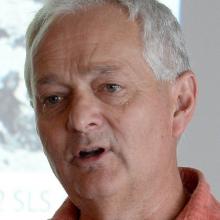 Michael Hilton
Michael Hilton

Dunedin
Services to conservation
Associate Professor Michael Hilton’s research in coastal management has made him one of the country’s top geographers.
Prof Hilton has made significant contributions to the progression of coastal management in New Zealand, particularly regarding sand dune restoration.
In his own time he has researched, visited, and categorised most sand dunes left in New Zealand and developed a classification list of dunes of national significance. He has worked for 20 years on Doughboy Bay and Mason Bay on Stewart Island. His work on the island has helped preserve the last remaining West Coast transgressive dune system in New Zealand and the methods he has helped develop for weed management have become the template for the rest of the country.
He has began a science assessment at Kaiterete Spit and developed a plan to restore the site and has worked to solve urban erosion and changing sea level issues at St Kilda beach in Dunedin. He has authored more than 50 publications on dune restoration and processes, has freely shared his knowledge in public meetings and talks, and has involved students and volunteers in his field work.
Prof Hilton is a member of the New Zealand Marine Sciences Society, New Zealand Coast Society, International Geosphere-Biosphere Committee of the Royal Society of New Zealand, and the Asia-Pacific Network for Global Change Research.
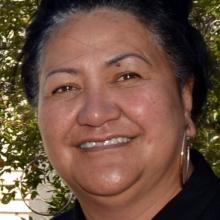 Donna Matahaere-Atariki
Donna Matahaere-Atariki

Dunedin
Services to Maori and health
Donna Matahaere-Atariki says her honour also reflects the efforts of many people she was worked with, in contributing to the health and education of Maori for more than 20 years.
She has also long represented Maori at a national level in a range of public forums.
But Ms Matahaere-Atariki said that, as one of 11 siblings in her family, she also felt shy about being recognised for work which she had done as part of a wider collaborative effort.
"I don’t like being in front.
"The things that I have chosen to do in my life have put me out there."
Her life was still strongly influenced in a positive way by both her late mother, Doreen Matahaere (nee Bain), and her father, Scotty Matahaere, of Invercargill.
At times she still felt "incredibly frustrated" about big inequities in society, but when working with other people she also believed "just be kind".
After teaching at the University of Otago, she had become education manager at the Ngai Tahu Development Corporation, and executive officer in the office of Te Runanga o Ngai Tahu.
Later she was chief executive of Ngai Tahu’s former health subsidiary He Oranga Pounamu (2012-2014). She was a former member of the National Strategy Group for Early Childhood Education, the National Strategy Group for Race Relations, and the Ministry of Social Development’s National Advisory Council for Families and Community Services.
She is a representative for the Maori health sector and chairs the Ministry of Health’s NGO Council. She chairs Te Runaka o Otakou, is a Trustee of the Well South Health Network, a University of Otago Council member, and a Trustee of Te Whare Pounamu, her local women’s refuge.
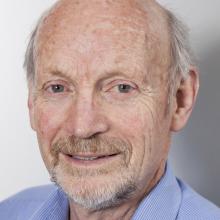 Neville Peat
Neville Peat

Dunedin
Services to conservation
Neville Peat has dedicated 30 years to conservation and environmental advocacy.
The Dunedin man established the Dunedin Environmental Business Network in 1993 and was its chairman for five years.
He was a trustee of the New Zealand Sea Lion Trust, Otago Peninsula Biodiversity Trust and Hereweka Harbour Cone Trust, and for six years chaired the Otago Natural History Trust, which established Orokonui Ecosanctuary.
The prolific writer has written books on the natural environment including Forever the Forest (1987), The Falcon and the Lark (1992), Wild Dunedin (1995), Seabird Genius (2011), and Rivers Rare (2016).
Wild Dunedin won him the Montana New Zealand Book Award, Natural Heritage Category, in 1996. He was also Dunedin’s inaugural Citizen of the Year in 1994.
The honour was "unexpected", he said.
"There are so many people who volunteer their time to nature conservation."
Mr Peat said his love for conservation began in the 1980s.
He has chaired the Pukekura (Taiaroa Head) Reserves Co-Management Trust Board since its inception in 2015. He also wrote the Government nomination of the New Zealand Subantarctic Islands as a Unesco World Heritage Area, which was listed in 1998. In 2007 he was awarded the Creative New Zealand Michael King Writers Fellowship to write The Tasman Biography of an Ocean (2010). During three terms on the Otago Regional Council until 2007 he chaired the Environment and Science Committee.
He was elected to the Dunedin City Council in 2013 and was Deputy chairman of the Community and Environment Committee. Mr Peat is also a member of the Government-appointed South-East Marine Protection Forum.
QSM
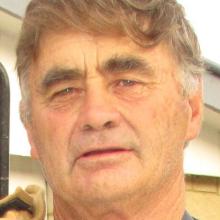 Ian Rodney (Rod) Anderson
Ian Rodney (Rod) Anderson

Luggate
Services to Fire and Emergency New Zealand and the community
Rod Anderson has contributed voluntary service to the Luggate community through a range of organisations for more than 40 years.
During that time he has held the position of Chief Fire Officer, become a life member of both the Luggate-Albion Cricket Club and the Wanaka Rodeo Club, and remains a local Civil Defence co-ordinator and deputy chairman of the Luggate Community Association.
Mr Anderson said he was "humbled" by the honour of receiving a Queen’s Service Medal.
"It’s one of those things where you do it all for the community, not for yourself."
"The rest of the family gave up a lot over the years for me. I should’ve been with the family more but I was often out volunteering in the community and focusing my time there."
"I have a great affection for my local community. [Luggate] means an awful lot to me," he said.
Mr Anderson has been living at the same property in Luggate since 1972 and has seen the village change dramatically during his tenure.
The roads have been sealed, playgrounds built, cricket club established, and subdivisions developed.
But despite the change, Mr Anderson believed the village remained "very family-orientated".
Currently, Mr Anderson is trying to keep the local fire brigade going by attracting new members, as well as working on the Red Bridge project, of which he has been a driving force.
He believed the biggest priority remained fixing up the town hall, which had been closed after it was designated an earthquake risk earlier this year.
"It’s important to get something up and running as soon as possible, as it is the centrepiece of the village."
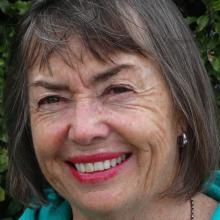 Carrol Browne
Carrol Browne

Fox Glacier
Services to the community
Carrol Browne has had a major impact on the Fox Glacier community during her 43-year tenure in the town.
In 1985, Mrs Browne founded the Community Contact Network, which was established as a small group of women who wrote, published and distributed a newsletter to people across west Southland.
In more recent times she has been a key figure in fundraising for the construction of a new community centre in Fox Glacier, which was completed in April 2017, nearly 10 years after the project started.
Mrs Browne helped found and is Director of Fox Glacier Guiding, a leading nature-based tourism company, and has held membership on West Coast tourism boards. She was also a member of the Marine Protection Forum in 2005 and has been a South Westland representative to Tai Poutini Polytechnic.Mrs Browne said it was "very gratifying and very surprising" to receive a Queen’s Service Medal.
Looking back, she believed her biggest achievements were founding the Community Contact Network, seeing the completion of the community centre, as well as being a part of the Marine Protection Forum, which she said was a "tremendous thing to be a part of".
In the future she hopes to see more young people become involved in operating the community centre, and will continue to work to make sure it becomes a well-functioning hub of activity.
 Philip John Craigie
Philip John Craigie

Mosgiel
Services to music
Philip Craigie’s noteworthy contributions to the music scene for more than 50 years have been rewarded with a QSM.
Mr Craigie said it was an honour but he was humble about the award.
"It’s not only an honour for me, it’s an honour for all the people that I’ve interacted with over the years.
"The people that you’ve worked with, the people that you’ve taught that have gone on to do great things, the audiences that listen and enjoy what’s presented to them — all those are satisfying things and they spur you on."
Mr Craigie has contributed to the music community as a performer, teacher, mentor, and musical director since he was in his teens.
During his 40-year teaching career, he was head of music at Riccarton High School and Otago Boys’ High School, before being appointed deputy principal at Taieri College (formerly Taieri High School) and principal at Kaikorai Valley College.
During this time, he was heavily involved with the Otago Secondary Schools Music Festival committee and helped prepare the constitution for it to become an incorporated society.
He has also taught many pupils to play brass instruments through schools, community music programmes, and as a casual teacher.
On top of his busy life in secondary education, he has been musical director of the Mosgiel Brass Band since 1988.
He has also been involved with St Kilda Brass, conducted the Otago Symphonic Band, conducted and led the Celebration Singers on several national tours and a tour to Tasmania, and under his leadership the choir produced four records.
Mr Craigie also undertook the mammoth role of chairing the organising committee for the North Taieri Presbyterian Church’s 150th anniversary celebrations in 2016.
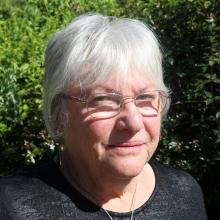 Frances Diver
Frances Diver

Alexandra
Services to the community
Francie Diver has been one of the leading figures in integrating Maori into the Central Otago community.
She said receiving a Queen’s Service Medal was "a bit of a shocker".
But when she reflected on her work, there was more than just her to it.
"There’s a Maori proverb — E hara taku toa i te toa takitahi, he toa takitini — my strength is not as an individual, but as a collective.
"You never work alone, there’s always a group of warriors behind you that have walked that same walk, there’s just one person out the front."
Ms Diver led the development of several Maori health initiatives in Central Otago.
Nationally, she was a director of the former Crown Research Institute Crop and Food Research Ltd and a member of the National Advisory Council on the Employment of Women.
She was raised in Taumatu, near Lake Ellesmere in Canterbury and hails from the Ngai Tahu iwi with ancestry from the historical Waitaha and Kati Mamoe iwi.
She has lived in Alexandra for 45 years.
One project she felt close to was Uruuruwhenua Health, which she started in Alexandra in the early 2000s.
"We saw a gap of Maori not using the health facilities because they were nervous so I started a Maori health service.’’Being involved in the community was part of her life from the start.
"I’ve been involved with things Maori for all of my life and whenever you’re coming from a marae situation, if you saw something that needed to be done you normally did something about it. You got involved with things because you saw there was a gap or a need."
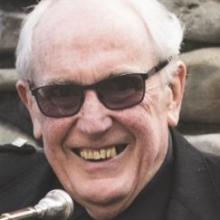 Leslie Graham
Leslie Graham

Masterton
Services to brass bands
Masterton man Leslie Graham says he is "gobsmacked" to receive the Queens Service Medal for services to brass bands.
He was "born and bred" in Dunedin but now lives in Masterton. In his 65 years dedicated to brass bands and music he has toured all over the country to teach others throughout that time. The thought of being honoured in such a way never entered his head.
The former Kings High School pupil played in the school band about 1951 before joining the Caversham and Green Island bands.
His longest association was with the Mosgiel Brass Band which he joined in 1973.
He had his arm amputated in a farming accident in 1984 after which he had to relearn how to play. He worked with occupational therapists to create a harness which allowed him to hold an instrument.Mr Graham has taught and mentored young players, organised and volunteered at music camps as well as raising funds for youth bands.
He started a learners group with the Mosgiel band which became the "catalyst" for programmes at Mosgiel and Kaikorai.
In the 1990s he assisted the Roxburgh Band during a period of rebuilding, conducting it so it could attend a national championship and finding it a new conductor.
Nationally, Mr Graham has supported the introduction of new sections to open up the slow melody solo competition in National Championships and introduced the Les Graham Trophy for Slow Melody in 2015.
 Alfred Warwick Grimmer
Alfred Warwick Grimmer

Dunedin
Services as a charity auctioneer and to the community
It is easy to volunteer your time when it’s for causes you believe in, Warwick Grimmer says.
Mr Grimmer said he was humbled and grateful to receive The Queen’s Service Medal but also that it should be shared with all the people who had generously supported the charitable causes he had been involved in.
For more than 35 years he has offered his services as a charity auctioneer and master of ceremonies to organisations throughout Otago such as the Halberg Disability Sport Foundations, Regent Theatre Trust, Otago Community Hospice, Women’s Refuge, Otago Access Radio Society, Adult Literacy and the Otago Rugby Football Union.
"I have been doing this for a long time and I do it because I believe in the causes."
He often travelled long distances throughout the region to perform the roles of on a voluntary basis, refusing payment for his services, expenses and travel costs.
Within the wider community he was a founding member of the Rotary Club of Dunedin Central since 1980.
He had also been involved with Rhododendrons for Dunedin Trust as founding chairman since 2000 and helped oversee the planting of approximately 20,000 plants around the greater Dunedin area.
"The award really should also be shared with the dedicated tight-knit group who have driven the Rhododendrons for Dunedin Charitable Trust to achieve such lofty goals," he said.
Mr Grimmer became a Fellow of the Real Estate Institute of New Zealand in 2004 and was a member of the Otago executive of from 1980 to 2005, having been involved with the institute since 1976.
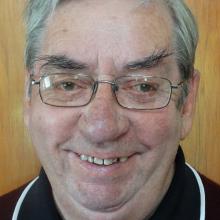 Graham Keep
Graham Keep

Oamaru
Services to scouting and the community
Graham Keep has mixed feelings about being formally recognised for more than 40 years of work in the community.
He said he had a "pretty good idea" of who nominated him for the accolade and while it was unexpected, Mr Keep considered it to be an honour.‘‘I’m a bit embarrassed, really. There’s a lot of other people in the scout movement that have probably put in as much time and effort as I have. It’s very humbling."
Mr Keep, who received a Waitaki District Council Citizens Award in 2003, has been involved with the New Zealand Scout movement since 1974, initially as a Scout Leader and Group Leader of the Silverstream Scout Troop.
Mr Keep went on to hold leadership roles with other scout troops around New Zealand.
He was appointed Assistant venturer leader of the Oamaru-Waiareka District Venturer Unit and later became district scout leader.
Mr Keep was appointed District Commissioner in 1990 and for the next eight years he oversaw Oamaru-Waiareka District in developing a high level of participation, a strong volunteer base and long-term financial security.He has co-ordinated the district’s two main fundraising initiatives — the Goldfields Cavalcade and a marquee hire programme.
He remains a member of the district committee and is currently fundraising and equipment hire manager and district quartermaster.
Mr Keep joined the Waitaki Rotary Club from 2002 to 2012, through which he has contributed to a range of community projects and was appointed youth director in 2003.
He was president from 2005 to 2006 and was instrumental in the purchase and operation of a food caravan that continued to raise funds for the community.
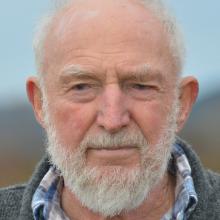 Daniel Lyders
Daniel Lyders

Outram
Services to conservation and forestry
Outram farmer Dan Lyders has received the Queen’s Service Medal for services to conservation and forestry, but one of the greatest satisfactions in his decades of community service came in the health sector.
"I’m particularly proud of when I was secretary-treasurer of the West Taieri Medical Services Committee I was able to work successfully to keep a doctor at the medical centre in Outram," Mr Lyders, 80, said.
"That was very satisfying."
Mr Lyders also served on the Berwick School Committee, as secretary of the Otago-Southland Dorset Down Breeders, as a member and chairman of Saddle Hill Pest Board, and was involved with Taieri Dramatic Society.
Mr Lyders was a founding member and 30-year committee members of the Mid Otago Branch of the Farm Forestry Association.
He was president of the Otago Acclimatisation Society when it restructured to become Fish and Game Otago: Mr Lyders was the first chairman of the new entity.
"We had to amalgamate with the Central Otago Lakes District, and that was quite tricky because they were quite nervous and thought they were going to be dominated by a Dunedin-based group," Mr Lyders said.
"I was very pleased to be able to get that done without too much trouble."
One of Mr Lyders’ legacies will be in his work to preserve wetlands. A founder and current board member of Waihola Waipori Wetlands Society, he also maintains a private wetland on his own property.
"That will be there forever. It will never fall by the wayside."
 Diane Patricia Nutsford
Diane Patricia Nutsford

Timaru
Services to people with Alzheimers and dementia
Diane Nutsford’s dedication and support of South Canterbury people with Alzheimers and dementia, has been rewarded with a Queen’s Service Medal.
Mrs Nutsford has been president of Alzheimers South Canterbury since 2009, a committee member since 2005, and has been instrumental in establishing and driving a national fundraising programme for people with the conditions.
As part of her role, she organised the inaugural Memory Walk in Timaru to raise awareness of dementia, and the event is now an annual event in South Canterbury and elsewhere in New Zealand.
She was also instrumental in the creation of the Park Centre, which provides elderly people, including those with dementia, day care for up to six days a week.
It was created after she developed a proposal to the Timaru District Council, to use the building and grounds of a defunct local bowling club located within the Timaru Botanic Gardens.
The council agreed to the project in 2014 and the site was developed over the following 18 months.
Other spaces in the building are used for meetings and as gathering places for other community groups, while the grounds are still being developed.
To date, about $600,000 has been spent in refurbishing the centre and she has played a key role in raising the funds.
Mrs Nutsford has been a committee member of the South Canterbury District Health Board Disability Support Advisory since 2013.
Her achievements have also been recognised by the Timaru District Council. She received the council’s Community Service Award in 2016.


